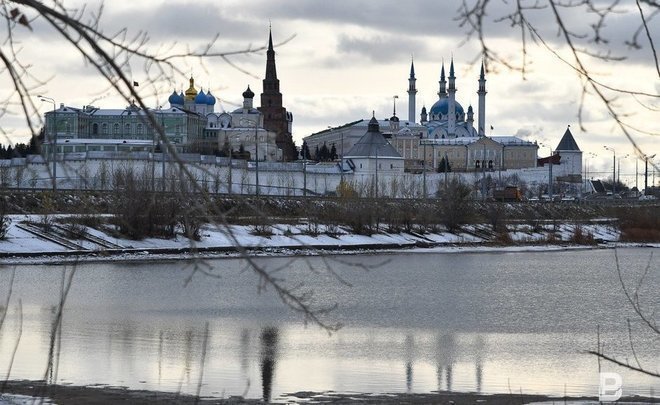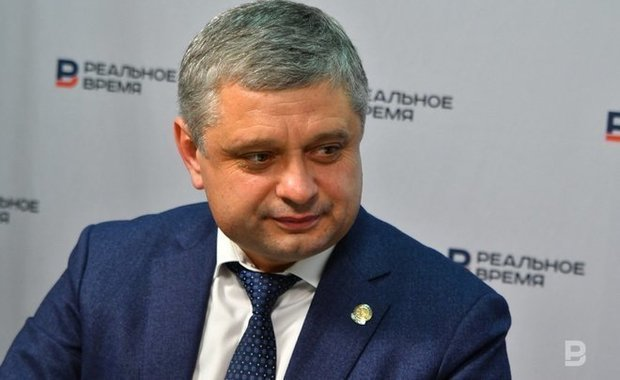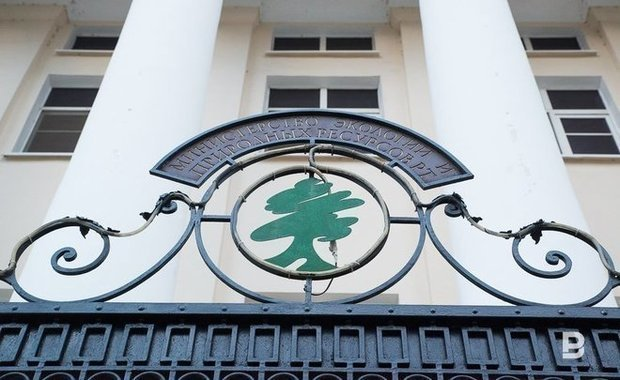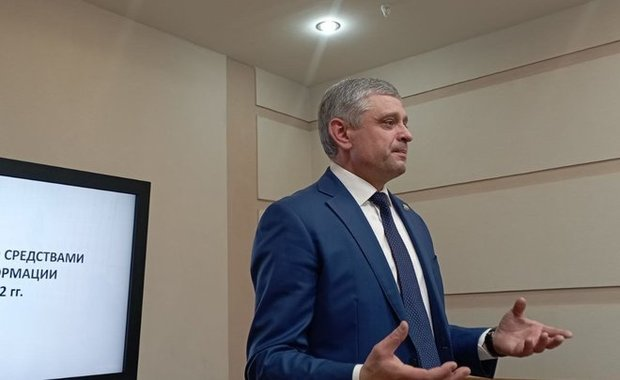‘Water is more valuable than oil, our task is to save it’

850 environmental protection measures for a total of 51,8 billion rubles (including 19,9 billion from all budget levels) have been taken in Tatarstan in the last five years. Thanks to them, environmental conditions for 2,3 million people have been improved and a damage at 58 billion rubles has been prevented too. Minister of Environment and Natural Resources of Tatarstan Alexander Shadrikov explained how these measures were taken and what tasks ecologists had for the following year. Read more in Realnoe Vremya’s report.
Environmental economy in the last five years
Extrabudgetary money of enterprises account for the biggest part of financing in environmental protective measures in the last five years, Shadrikov started. So in 2018, it totalled 5,8 billion rubles whereas the full amount of money spent from the regional and federal budgets was only 721 million. So the total sum of the measures amounted to more than 6,5 billion rubles.
According to him, in 2019, this sum rose to 8,1 billion — 5,9 billion from enterprises and 926 million from the budgets. Ecology national project that contributed another 1,2 billion rubles appeared at the same time too. In the last three years, the situation has looked the following way:
- 2020 — 10,9 billion rubles: 6,3 billion from enterprises, 1,8 billion from the budgets, 27 billion within the project.
- 2021 — 11,4 billion rubles: 6,8 billion from enterprises, 1,3 billion from the budgets, 3,3 billion within the project.
- 2022 — 14,6 billion rubles: 6,8 billion from enterprises, 1 billion from the budgets, 6,8 billion within the project.
At the same time, incomes from environmental taxes and payments (excluding mineral tax on crude hydrocarbon) in the last five years has been 5,2 billion rubles, the minister stressed.

The Volga’s health is the most valuable thing
29 measures for 14,1 billion rubles have been taken within the Ecology national project from 2019 to 2022 in Tatarstan. As Shadrikov said, another 8,7 billion are envisaged to be spent from 2023 to 2025. This project includes six key areas — federal projects where the Remediation of the Volga River, 6,3 billion rubles, has been the most financed one this year, the minister noted.
According to the plan of this project, 13 treatment facilities are to appear in the republic from 2019 to 2024. Nowadays 12 have already been built. After the facilities are built, 752,400 cubic metres of sewage a day will be treated to meet the norm.
The minister of environment and natural resources says that 94,1 ha of silt will be remediated (to be reused) in Kazan until 2024 within the Volga River Remediation. Also, 23-km-long inactive pipelines will be disassembled in a lake near the Nizhnekamsk Water Reservoir.
Noksa and Karakul river treatment to start next year
There is also the Conservation of Unique Water Sites federal project within the Ecology national project. As Alexander Shadrikov explained, two environmentally important sites are treated in Tatarstan — a river bed of the Noksa River in Kazan and oxbow Karakul Lake in Nizhnekamsk District.
The works in the first one are planned to be developed from 2023 to 2025. Their preliminary cost is estimated at 400 million rubles (subventions from the country’s budget). 21,4km within the city will be treated. Also, design estimate documentation for 9,5 million rubles is being developed.
“Our task is to get rid of the negative impact on water sites within the Conservation of Unique Water Sites. We made a presentation, defended this project in Moscow, it is the discovery and evaluation of negative factors,” noted the minister.
The lake will be treated in 2023-2025. The costs on the project are planned to be 628 million rubles from the state’s budget. 3,46km will be cleaned. Living conditions in garden community on an area of 615 ha are going to improve.
“Water is more valuable than oil, our task is to save it”
Nowadays there are more than 36,300 water bodies, 13,600 streams (rivers, springs, canals), 11,900 lakes, 5,900 ponds and pits, 3,600 springs as well as 1,100 swamps, the minister said.
The borders of 141 sites 4,100km long have been outlined from 2018 to 2022. At the same time, there have been installed 697 signs — 9,63% of all installed borders of water protection zones and borderline protection lanes.
108 specialists points (of which 55 on the water) and 132 control posts making more than 31,000 measurements a year oversee the quality of the water surface, according to data of 2022. For instance, 31,060 measurements have been made this year and 5,000 violations have been detected (as of 26 December).
Shadrikov noted that ecologists have registered the number of polluting substances on the water surface has exceeded 1,2 times since 2018 (by 18,7%).
“Water is more valuable than oil, our task is to save it,” he stressed.

No excess of formaldehyde in the air
As for the air quality, nowadays there are 16 automatic control stations in the republic, six mobile and eight fixed labs as well as 105 control points making over 4 million measurements a year.
According to the minister, 4,3 million studies have been done this year when 972 violations have been detected (the latest data as of 26 December). He noted the content of polluting substances in the air had reduced 3,7 times since 2018 as another general tendency (by 72,7%).
In the last five years, the air pollution control system has been reequipped with 33 pieces of analytic equipment, 13 meteorological stations for more than 75 million rubles. And if in 2018 there were measured 32 polluting substances, by 2022, the specialists have been able to measure 36 types.
Formaldehyde control stations have been installed in Kazan, Naberezhnye Chelny and Nizhnekamsk from 2021 to 2022. So according to their measurements, the highest allowed emission is 1,79g a second in the capital of Tatarstan, gross emission is 20,79 tonnes a year. There has not been registered an excess of the allowed content of formaldehyde in the air yet.
Tasks for the future
Shadrikov voiced the ministry’s tasks in 2023:
- Measures taken to treat and improve the Noksa River;
- The construction of the Republic Ecological Centre in Kazan;
- Solution of problems related to the use of a solid waste landfill on Khimicheskaya Street.
Among long-term tasks through 2027, the following works can be singled out:
- Making changes to the Water Reservoir Use Rules of the Volga-Kama Cascade;
- Measures taken to reconstruct treatment facilities in the Kama River;
- Improvement of the potable water quality supplied to the republic’s population;
- Raising sunk ships;
- The construction of a roundabout way for lorries of the Nizhnekamsk hub;
- Creation of measures aimed to raise the level of the Kazanka River.
“In 2022, national rating agencies and Moscow State University have recognised our republic as the most eco-friendly Russian region. This is an independent opinion in 14 indicators, a study in 45 indicators was done too: ecology, sociology, administration, economy, etc. Tatarstan became first in the country. In ESG ranking, the republic is second after Moscow,” Shadrikov said.
